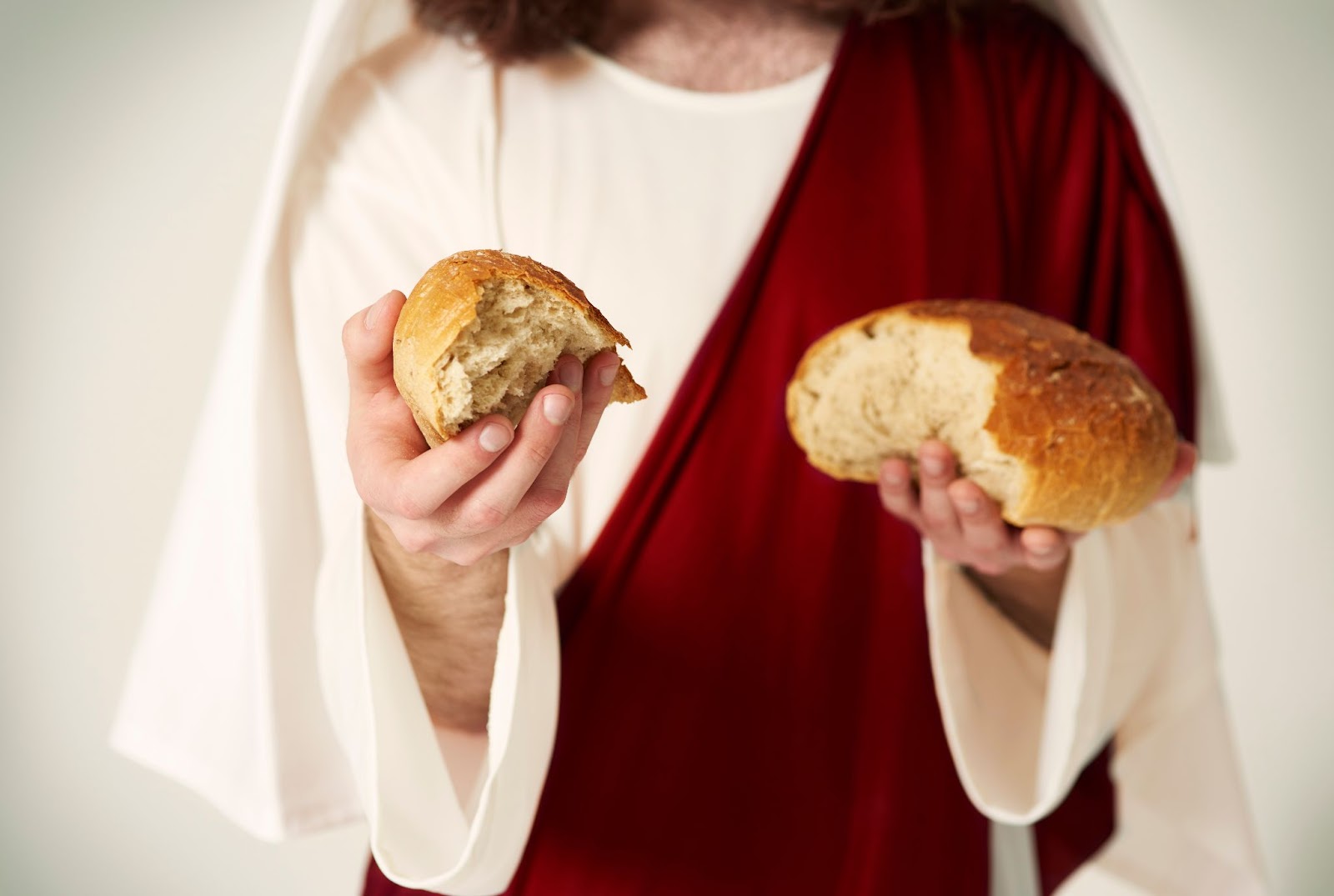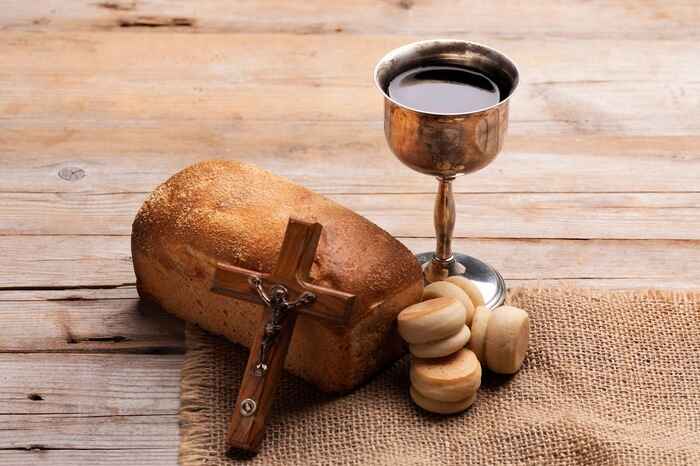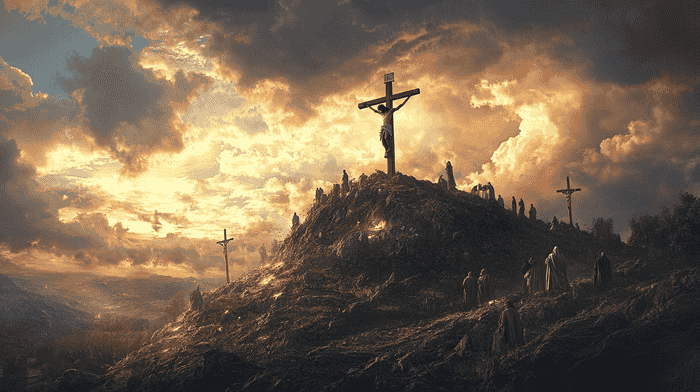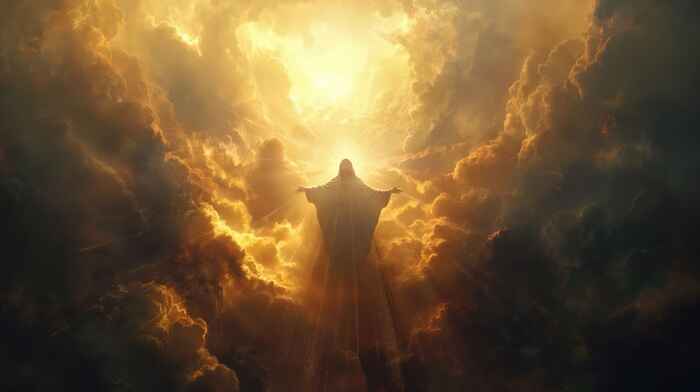What Is Maundy Thursday?
On the Thursday preceding Easter, known as Maundy Thursday, Christians remember the Last Supper, when Jesus instituted the Eucharist.
According to popular belief, the name comes from the Latin anthem "Mandatum novum do vobis" ("a new commandment I give to you"; John 13:34), which was sung in Roman Catholic churches on that day. Holy Thursday is the name most commonly used for Maundy Thursday in Europe.
Other names for the same day include Green Thursday (Gründonnerstag), which originated from the practice of offering penitents a green branch to symbolize the completion of their Lenten penance, and Sheer Thursday (clean Thursday), which is associated with the ceremonial washing of altars.
A universal communion of people and clergy was observed on this day in the early church. In order to prepare for the anointing of the neophytes during the baptism during the Easter vigil, the bishop consecrated the chrism (holy oils) at a special liturgy.
In Roman Catholic churches, Maundy Thursday has been observed with a morning liturgy to consecrate the holy oils for the following year and an evening liturgy to commemorate the institution of the Eucharist, with a general communion, since 1956. On Good Friday, when the liturgy is not held, the hosts are consecrated for communion.
The celebrant then performs the ritual washing of feet, symbolically washing the feet of twelve individuals in remembrance of Christ's washing the feet of his followers. This is also the day when the Eastern Orthodox church blesses oil and washes feet.
 The Spiritual and Historical Significance of The Last Supper
The Spiritual and Historical Significance of The Last Supper
At the heart of Maundy Thursday is one of the most significant and tender moments in the life of Jesus - the Last Supper. If you’ve ever wondered why it is called the Last Supper, the answer lies not just in its timing, but in its meaning.
This was the final meal Jesus shared with His disciples before His crucifixion, but it was also a moment filled with teaching, prophecy, and profound love.
Why Is It Called The Last Supper?
The term Last Supper refers to the final meal Jesus shared with His disciples before His arrest and crucifixion. This event is recorded in the Gospels of Matthew, Mark, and Luke. It was more than just a farewell meal. It was a sacred gathering during Passover, a time when Jewish people remembered how God delivered them from slavery in Egypt.
At this special meal, Jesus revealed that He would soon suffer and die for the sins of the world. He took the bread and the cup, traditional parts of the Passover celebration, and gave them new meaning. The bread represented His body, and the wine symbolized His blood. He asked His followers to remember Him each time they ate and drank.
It is called the Last Supper because it was the final meal Jesus would eat with His disciples before His crucifixion. More importantly, it marked the end of the Old Covenant and the beginning of the New.
Why Did Jesus Have the Last Supper
Jesus had the Last Supper not only to share one final meal with His disciples but also to prepare them for what was to come. He knew the cross was near. He knew suffering was close. This was His moment to teach, to comfort, and to give them something they could hold onto after He was gone.
The meal took place during the Jewish Passover. Jesus used this occasion to connect His mission to the story of Israel’s rescue from Egypt. Just as the blood of a lamb had once protected the Israelites, Jesus was now offering His own blood to save humanity from sin and death. As He said, “This cup is the new covenant in my blood, which is poured out for you” (Luke 22:20).
Jesus also used the Last Supper to establish a sacred practice for His followers. He took the bread, gave thanks, broke it, and gave it to them, saying, “Do this in remembrance of me.” This was the beginning of what Christians now call communion or the Lord’s Supper.
The Last Supper was a time of preparation, but it was also a moment of love. Jesus comforted His friends, warned them of the trials ahead, and reminded them that His death would bring new life. He gave them a spiritual anchor, a clear picture of grace, and an invitation to keep following Him with faith and hope.
Why Did Jesus Dip the Bread and Give It to Judas
During the meal, Jesus told His disciples that one of them would betray Him. They were shocked. One by one, they asked, “Is it I, Lord?” Jesus responded by dipping a piece of bread and handing it to Judas Iscariot.
This action might seem small, but in that culture, it carried deep meaning. Sharing a piece of bread in this way was a sign of closeness and trust. Even in this painful moment, Jesus extended a final gesture of friendship to Judas. He did not publicly shame him. He did not expose him with anger. Instead, He quietly gave Judas one more opportunity to repent.
So why did Jesus dip the bread and give it to Judas? It was an act of grace. Jesus knew what Judas was planning. Yet, He still treated him with dignity. He gave him a chance to change his heart without humiliation.
This moment reminds us that Jesus does not turn away from us, even when we are struggling or failing. He offers love, not condemnation. And even when we fall short, He continues to call us back to Himself with quiet compassion.
Why Did Jesus Wash Disciples' Feet
One of the most surprising parts of the Last Supper is when Jesus rose from the table, took a towel, and began to wash the feet of His disciples. This task was normally done by the lowest servant in the household. In first-century Israel, roads were dusty, and people wore sandals. Washing feet before a meal was an ordinary but humbling job.
Jesus, their teacher and Lord, chose to take that role upon Himself. His disciples were stunned. Peter even tried to stop Him, saying, “You shall never wash my feet.” But Jesus gently responded, “Unless I wash you, you have no part with me” (John 13:8). In that moment, Jesus was not just cleaning their feet. He was teaching them about humility, service, and forgiveness.
By washing their feet, Jesus was showing what it means to truly lead. He told them, “I have given you an example, that you should do as I have done to you” (John 13:15). This act was a lesson in love. It reminded the disciples that greatness in the kingdom of God is not found in power, but in service.
Jesus also pointed out that not everyone at the table was clean. He was referring to Judas, who would betray Him. While the others were spiritually clean through faith, Judas was not. This shows that the act of washing was more than physical. It represented spiritual cleansing and the ongoing need for grace as we walk through the world.
For us today, the foot washing is a symbol of the humble service we are called to offer each other. It is also a reminder that Jesus meets us where we are, washes away what clings to us, and invites us to live with hearts full of compassion.
Get Closer to God Today
4.9
Average Rating
|Over 5 Million Downloads
Maundy Thursday Bible Verses
 The best way to understand this festive day is by looking directly into the words in Scripture and making sense of their meaning.
The best way to understand this festive day is by looking directly into the words in Scripture and making sense of their meaning.
Luke 22:19–20
“And he took bread, and gave thanks, and brake it, and gave unto them, saying, This is my body which is given for you: this do in remembrance of me. Likewise also the cup after supper, saying, This cup is the new testament in my blood, which is shed for you.”
These are the words Jesus spoke during the Last Supper, right before His arrest. He took simple, familiar items - bread and wine - and gave them new meaning.
The bread now symbolized His body, which would be broken for us. The wine represented His blood, soon to be poured out to seal a new covenant between God and humanity. Jesus told His disciples to remember Him every time they ate and drank.
That’s where communion comes from. It’s not just a ritual; it’s a reminder of His love and sacrifice.
Matthew 26:26–28
“Jesus took bread, and blessed it, and brake it, and gave it to the disciples, and said, Take, eat; this is my body... For this is my blood of the new testament, which is shed for many for the remission of sins.”
Matthew’s Gospel gives us another view of the same moment. Jesus clearly tells us why He is doing this: for the forgiveness of sins. He was offering Himself so that we could be made right with God.
John 13:14–15
“If I then, your Lord and Master, have washed your feet; ye also ought to wash one another’s feet. For I have given you an example...”
Here, Jesus does something shocking. He, the Son of God, kneels down and washes His disciples’ feet. This wasn’t just an act of kindness. It was a message. Jesus was showing them what leadership looks like in God’s kingdom: humility, love, and service.
John 13:8–10
“If I wash thee not, thou hast no part with me.”
Peter was confused and even uncomfortable with Jesus trying to wash his feet. He didn’t understand why someone so great would stoop to do something so low. But Jesus made it clear: if we want to be part of Him, we have to let Him wash us, not just our feet, but our hearts.
This is about more than cleanliness. It’s about forgiveness, grace, and the kind of spiritual closeness Jesus wants with us.
John 13:21
“One of you shall betray me.”
This is the moment when Jesus reveals that one of the twelve, someone close to Him,will hand Him over. It’s heartbreaking. But even in this moment, Jesus speaks calmly and with love.
He doesn’t lash out. Instead, He offers one last chance for repentance. It’s a reminder that Jesus knows our hearts, even the parts we hide. And still, He loves us.
Matthew 26:23–24
“He that dippeth his hand with me in the dish, the same shall betray me...”
This verse points directly to Judas. Jesus knows exactly who will betray Him, but He doesn’t name Judas outright. Instead, He speaks in a way that gives Judas a chance to stop, to turn back, to choose differently. It shows us Jesus’ patience and grace, even toward someone who has already made a terrible decision.
John 13:34–35
“A new commandment I give unto you, That ye love one another; as I have loved you...”
This is the heart of Maundy Thursday. The word Maundy comes from mandatum, the Latin word for command. And this is the command Jesus gives: Love one another as He has loved us. Not with half-hearted effort, but with the same deep, sacrificial love He showed through His life, and soon, His death.
Learn About More Important Holy Days with Bible Chat
Maundy Thursday is more than just a Biblical holiday that precedes Easter. It’s a reminder of His love for us, His kindness and patience, and His urge for us to love one another deeply and sacrificially.
Many more days hold such incredible spiritual significance and we might not even realize it. If you want to learn more about them, download the Bible Chat app and use it to easily navigate the religious topics that interest you.
With the Bible Chat app on your phone, you’re never more than a few taps away from learning something important about the Bible and faith.
References
- Maundy Thursday, https://www.britannica.com/topic/Maundy-Thursday, accessed on 13.05.2025;
- What is the meaning and importance of the Last Supper?, https://www.gotquestions.org/Last-Supper.html, accessed on 13.05.2025;
- Why Did Jesus Give Judas Communion?, https://www.catholic.com/magazine/online-edition/why-did-jesus-give-judas-communion, accessed on 13.05.2025;
- What was the significance of Jesus washing the feet of the disciples?, https://www.gotquestions.org/Jesus-washing-feet.html, accessed on 13.05.2025.
Source of the Images: Freepick.com










